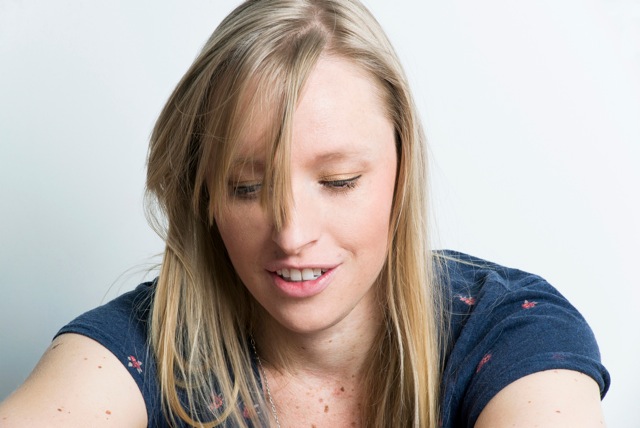
Monica shares her thoughts on the ‘aesthetic conditioning’ that is present in our culture and the different levels of privilege in the entertainment industry. Although she is white and can assimilate within the dominant ‘Anglo’ culture, she still feels excluded. “It is not just about being white, you have to be a size 8, Anglo-Caucasian, early to mid-twenties, attractive which is pretty much what is written on ALL of the casting briefs to act here – I am not a fit”.
Monica has Northern Italian heritage with strong Latin European features but blonde hair, a fair complexion and light eyes. She is broad shouldered and muscular from cycling and rowing. Yet she has been told she has the wrong body shape, height and personality for the industry. She is outspoken about the lack of opportunity afforded to women and others that defy popular stereotypes.
Ironically, even when viewing her award winning film (Skin Deep, 2014) that Monica wrote, produced and acted in, people said her body shape was ‘distracting’. The remarks were made when viewing scenes crucial to the story of the character’s diagnosis of melanoma and her struggle with a near death experience.
It seems clear that raising concerns in such a small industry could potentially be career-limiting. Monica believes this is why people are reluctant to take risks and why aesthetic conditioning poses a real problem for real life storytelling.
Regarding privilege, Monica says “It is hard enough for me. I can’t imagine being a minority or someone with a disability getting work. That’s what’s wrong with the industry. We don’t have real representations of communities like they do in the United States. I love what Shonda Rimes is doing there. I wish blind casting would happen here.” Many U.S production companies are implementing ‘blind casting’ to net the best talent from the broadest possible field. It differs from traditional casting that has often focused on an actor’s ethnicity.
Monica suggests that it is the generic culture in Australia that leaves many people fearful to create something different and keeps racism at such a systemic level in entertainment. She cites ‘Orange is the New Black ’as a drama setting the benchmark for cultural diversity. She laughs and says “There are only two skinny white girls in that cast and they are the minority amongst the rest of the cast. They are not cast as mothers. They play felons with unique stories. Some have kids and committed crime for money and the two Caucasians are lesbians too – so that is different.” She longs to create further roles where women don’t have to posess a redeeming feature, hide their ambition or simply be a roantic interest. She’d also like to see a cast comprised of a majorty of women, supported by a crew comprised entirely of women.
Monica believes that by choosing her own path and creating her own opportunities within the industry have helped her to progress to where she is today. Monica credits her family for raising her without a hint of racism and encouraging her to achieve anything she desired.
Interview by Alison Wilson. Photo by Emmy Etié.
